Author Spotlight: Dan Saunders
This week, we have another new miniseries, Author Spotlight.
In these author spotlight episodes, we will be chatting with other aspiring and new authors, from many different walks of life. We look forward to hearing all about their experiences. If you would like to be featured, get in quick while spots are still open. You can find a link in the submenu under ‘Podcast’ at the top of this page.
For our inaugural author spotlight, we have Dan Saunders as our guest, who is a new author of his novel Spice Traders, which is coming out in March 2021. We had a great talk with him about his personal challenges, and his thoughts on becoming an author. He also talks about resources he uses such as the famed On Writing by Stephen King. Listen in to find out more.
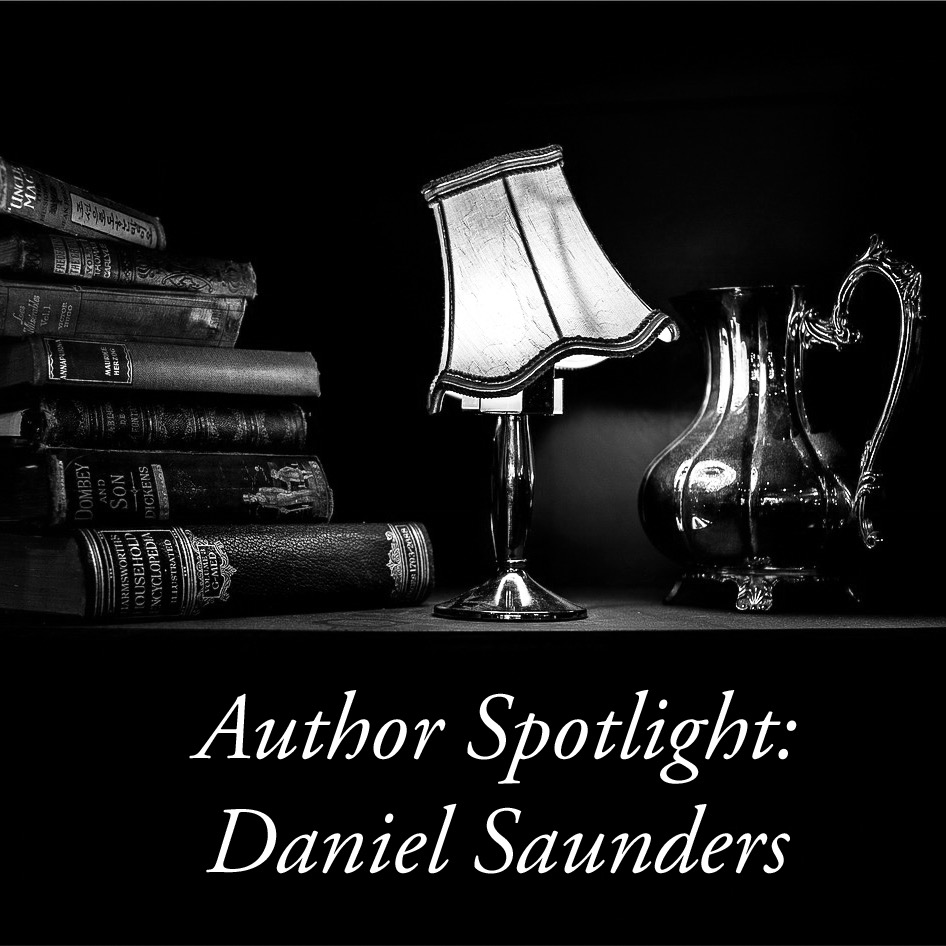
Transcript
Sarah: Welcome back to Dear Writer we are onto episode 10, which is the first of our author interview miniseries. We’ve got Dan Saunders here with us today.
Ashley: Hi Dan!
Dan: Hello.
Sarah: Hi! Do you want to do a brief introduction for him, Ashley?
Ashley: Sure. So, Dan is a English author based in Kent and during the day he teaches guitar and ukulele. But by night he’s a writer. So just like us he has multiple hats, multiple jobs. So welcome Dan. It’s nice to have you on the show with us today.
Sarah: Okay, so I’m I think I’ll kick this off with the first question. So how did you first get into writing? Was a passion that you had when you were young, or did it develop later on in life.
Dan: I think it did develop when I was younger, but it’s sort of laid dormant for a while. And then I had an idea for Soul Capture, which is a science fiction adult novel last October. October 2019, and just sort of sat on it and then I started talking to my sister about it. And she released a book earlier this year, and she said, you know, you should write yours. It’s a really good idea. So, during lockdown, June of lockdown through to August, I started writing Soul Capture and by August the 20th it was finished. And then as I was coming to the end of writing that, I had the idea for, for the YA book that’s going to come out in March, which is Spice Traders.
Ashley: I was just thinking it’s quite cool that you kind of just jumped into it as… you know, there’s no real build up… did you write stories and stuff as a kid or, did you have like, you know, some kids are super imaginative
Dan: Yeah, I did, I did write stories as a kid. But like I say, it’s something that that lies dormant really, because as you get older you discover new things. I discovered the guitar, obviously and beer tasted good too. So stories kind of went kind of by the by. But I did always enjoy stories and I always enjoyed reading, but it was difficult because I’ve got slight dyslexia. I had to go to a school—they picked up quite early, fortunately.
Ashley: Yeah.
Dan: So that’s one of those things that you don’t really… I don’t have to deal with it in everyday life a lot of the time, to be fair. But when I was writing it really came to the forefront and it was a bit of a struggle at times but I managed to work around it.
Sarah: Do you. Yeah. I was gonna ask you about, do you have any techniques or anything that you use to get around that or?
Dan: Well yeah actually speak into Google. And if I have trouble with spelling the word and I speak into my phone onto Google, and then it pops up or… and uh. Right here, I’ve got my dictionary and thesaurus as well. So I consult them. But a lot of the time, like I say, it’s not it’s not a problem. There are so many people that can’t spell
Sarah: Yeah, that’s true.
Dan: And really annoys me. When you read a book and you’re just thinking, come on, you should proofread this a bit better, but you know you are going to get spelling mistakes even if they’ve gone through an editor, the books that are released still have these problems. So you come to terms with it pretty quickly. You have to, otherwise you’re just not going to create anything, just end up throwing your laptop out the window or something. Which isn’t any good to anybody, so.
Ashley: No!
Sarah: It’s very impressive, I think, that you managed to… you started in did you say it was…?
Dan: June.
Sarah: June. And then you finished in August? That’s quite good going for your first book. I’d be proud of that if I were you.
Ashley: Yeah ,yeah. That’s quite…
Dan: Yeah well, it is a pile of junk. I mean, yeah ah… it needs work. I said this to you before, Sarah. And I think, you know, cause you…
Sarah: Still, you know, like for your first novel, like finishing it and that amount of time is super impressive.
Dan: It needs editing. It does need editing.
Ashley: But you have words down. Words down is always a great start, than having no words.
Dan: Yeah.
Ashley: It’s really impressive.
Dan: Yeah. Thank you. Thank you. Yeah, well I enjoy it and I’ve got lots of ideas. I mean, I’m planning on 2021 as an author point of view being pretty big. Spice traders has a release date now. Don’t know if you know that already, but 31st of March.
Ashley: Oh, exciting.
Dan: Yeah so. And if you go into Good Reads there’s an ISBN and if you type in my name, there’s a temporary book cover.
Sarah: Oh nice.
Dan: Which you might have seen Sarah, I think you may have seen on insta. Possibly.
Yes. Yeah.
Dan: So you can have a look at that. My wife has read it and she finished it today. And she’s made some really good helpful things.
Ashley: Yeah.
Dan: So, so I’m going to really improve them, and I’ve got some other ideas. So it’s on track now.
Ashley: My husband read ours and also gave us incredibly valuable feedback so I think getting feedback from your spouse is a great way, because I just tell you how it is as well. Like, I don’t need to sugarcoat anything for you.
Dan: No. That’s right. I mean, we’ve… we’ve been married for, it will be 17 years next year. So, you know, we just tell it like it is! That’s the we roll, you know. You know each other well enough that… so.
Sarah: Yeah.
Ashley: I kind of feel like if I got a friend to read my book, they would try and like, oh, it’s fine. Like there’s nothing wrong but James, be like, no, I don’t understand this character just don’t get it, don’t like them.
Dan: Yeah.
Ashley: That’s all the time.
Dan: You don’t have to have likeable characters in the book, though, do you. People will still read your book if your characters are horrible. Sometimes that can be the glue though can’t it. If you’ve got a character that you absolutely can’t stand, you want to carry on reading because you want to find out what happens to them. Yeah.
Sarah: Hoping that they’ll come to an untimely demise or something.
Dan: Yes. Wringin of hands. Mwahahaha! That as we like to play God in our novels, don’t we?
Sarah: Yes, yeah. So who are your… some of your favorite authors and what writers inspire you?
Dan: Iain Banks, straight off the bat. Scottish author, no longer with us, sadly. He would write twisted fiction, some of it. And then he would write under Iain M. Banks, which was the sci fi. HG Wells.
Ashley: Oh yes.
Dan: Although I need to read more of his books. I’ve only read Time Machine and War of the Worlds, but War of the Worlds is my favorite book. I read that when I was unemployed once. And I read that in a day, so that’s still probably my favorite book. Oh, so yeah, and then all sorts of people. You know, I’ve recently discovered Marissa Meyer with Cinder and the whole Luna Chronicles, she’s really really good.
Sarah: Oh cool.
Dan: All sorts. All sorts.
Ashley: Mostly in the sort of science fiction-y genre?
Dan: It can be, I mean, I did read a lot of Patricia Cornwell in my 20s.
Ashley: Oh!
Dan: Yeah, yeah. So there were there were a lot of thrillers. I read all of the James Bond books, including the ones that were written under permission from the Fleming Estate.
Ashley: Right, yeah.
Dan: So, it’s a wide cross section of stuff I would say, yeah.
Ashley: So a lot of different influences coming into your writing. Across lots of different genres.
Dan: Yeah, but the biggies would be Iain Banks and HG Wells, I would say.
Sarah Tinaburri: Might have to, might have to have a look at some of those.
Dan: Yeah, if you wanted Iain Banks, if you wanted his stuff, a good place to start… well, there’s two good places to start. It depends, did you want sci-fi Sarah, or do you want fantasy.
Sarah: I do read a little bit of sci fi, not really any fantasy, but, I’ve been reading The Expanse series.
Dan: Right.
Sarah: I don’t know if you’ve… have you watched or ever read any of… you should certainly watch the series as well. Like, it’s very good.
Dan: What’s that on?
Sarah: It’s by two collaborative… it’s sci fi and I think it’s like based in the future. So when earth has kind of expanded out into the Galaxy and…
Dan: Is it on Netflix?
Sarah: Oh, I think is… trying to think where it is on, because we have so many different streaming platforms that I never… I get so confused. It’d be like Netflix or Amazon, maybe? I’m not… I’m not 100% sure on that.
Dan: Okay, I’ll look it up. I’ll see if I can find it
Sarah: It depends, as well with UK, cause I know different Netflix over… have different things and different countries, so.
Ashley: Like New Zealand’s is terrible. It never has anything! So, when you first started your writing, and writing you said was called Soul Capture your first, your first book?
Dan: Yeah, that’s right, yeah.
Ashley: How did you start to try and better yourself as a writer? Did you use podcasts or YouTube or any books or anything you found particularly helpful, that you could suggest to others?
Dan: Yeah, I did. I did use YouTube to begin with because it’s right there isn’t it. And then I ended up rediscovering an author called Jerry B. Jenkins. He happened to have… I signed up for his mailing list, and he hadn’t have a free webinar that you could go on and it was all about writing and stuff, but he was when I signed up to it, he would send you things to improve your writing. Like one of them was absolute golden, and when I’m editing I hear his voice in my ear. It was an editing video, it was very short. But he was saying, you’ve got all these glue words here and you can just chop that down and make it easier to read. Just the whole idea as authors, isn’t it, we want people to be able to read it really quickly. So, so that was one thing and then just other YouTubers and people like that, and then eventually started buying books that people were recommending. On Writing by Stephen King. I recommend that.
Sarah: That’s a really good one. Yeah. I’ve read it.
Dan: It is excellent. It’s excellent. And Into the Woods, as well. I forget the guy’s name on that one. He’s a screenwriter, but it talks about structure. Plot structure, and the inciting incident and all of those things that you know are there, but you don’t know what they’re called when you, when you’re a reader. When you’re a reader, and then you become an author, you discover all these terms it’s like, well, what’s that? You know, what’s the low point? And the bit in the middle and all that stuff? You don’t, you don’t know all that. And then you start looking into it. So yeah, so it was a combination of, of internet webinars and books really.
Ashley: I’ve never read the Stephen King one. It’s… I’ve been wanting to get it from the Auckland library, but it has a waiting list of like 27 people so I might just have to buy it.
Dan: I would. It was really good because it gives you the first half is his, his autobiography, and then he talks about his writing career. But then he comes back to what he’s going through when that book was written as well. So it’s really, really good. Really good.
Ashley: I might have to buy it. Think I’ll have to… I’ve wanted to… I’ve always quite admired Stephen King. Even though I haven’t read a lot of his books just, you know, when you see how like influential some of his books are, and they’re always such interesting stories. Be quite good to see what goes on.
Dan: Your well I’m reading a massive brick of a book I’m reading at the moment. One of his, which is 11/22/63. Yeah, this guy discovers that he can go back in time and his friend tries to convince him to stop J. F. Kennedy from being assassinated. So it’s an interesting, interesting premise, because not all these books around horror, because they go oh, Stephen King, horror. But his career is really quite wide and diverse.
Sarah: So how do you juggle your work/home life with your writing.
Dan: Well, it’s pretty easy right now because I haven’t got a lot of work. So I’ve got a lot of time. Yeah, you have to… you have to prioritize, you have to make time to do the writing, and at the end of the day, sometimes you just have to sit there and just put one word in front of the other. But, there comes a point where there’s a natural break off. Sometimes I… a lot of the time, I can sit there for about six hours, and I can just bang out a lot of words and it’s great.
Sarah: Yeah.
Dan: But then again after you get to that six hour period, you think I had enough. My eyes are tired so from that there is a…
Sarah: Yeah!
Dan: There is a natural breaking point where you think, right, that’s enough for today.
Sarah: Yep.
Dan: But no, my wife and daughter have been really supportive, and they think it’s amazing that I’ve decided to sort of write books and throw myself into it. So they’re really supportive of it so…
Sarah: That’s great.
Ashley: Forgot what I was gonna say. It’s fine. Um, I was gonna say it must be really helpful with having the lockdowns because you do get to really focus on your writing right now, which is probably really beneficial because you can, I guess since you’ve started so recently, you can do a lot of work to, you know, improve your writing with like I guess intensive sessions. We’ll call that.
Dan: Yeah yeah I mean it is, it’s just like any other art, isn’t it, really, that the more you do it, the better you get. So…
Sarah: Yeah
Dan: Michelle’s just finished reading the proof of Spice Readers and… Spice Readers. Spice Traders. Spice Traders and she said, you can definitely tell that you get… the book gets better as you get further on towards the end of the book. So it’s good. You can tell the difference between my writing and on Soul Capture and with Spice Traders as well. So. But, yeah, you’re right. I mean the advice that people give you is, ‘good writers read, and great writers read a ton.’ And that’s what you’ve got to do. You just got to get your reading in there and then just batter away at your keyboard. And eventually, you know, you hope that you’re going to come up with something half decent that people want to read. So, but yeah, it’s just putting in that that that grind work isn’t it really.
Ashley: Yeah, definitely.
Sarah: Definitely, yeah.
Ashley: Just lots of, you know, attempting, failing, attempting again and then you’re like, hey, it’s a little bit better.
Dan: Yeah.
Sarah: So, what’s your writing process like? Are you a plotter or a pantser? Or somewhere in between?
Dan: I started off being a panster for Soul Capture and that one came out really short. So I started pantsing Spice Tradersand then I ended up being something in between. And I think that’s probably what I’m going to work towards.
Ashley: Yep.
Sarah: I think that’s a good place to be.
Dan: Yeah, yeah. Dial Back, which is the second book in the Soul Capture series, I plotted that out. Michelle showed me Microsoft One Note. So put photographs of people who I’m writing in the head of, if you like, or having a visual representation of how I want that character to look and I’ve put down the vehicles and cars and things like that. And I think that’s going to be good. But, even if you plot something out, you’ve still got an element of pantsing in there, because even though you’ve mapped out that scene, you’ve still got to think about the conversations that people are going to have, what they might be eating, what they’re doing when they’re having a conversation. All that kind of stuff.
Sarah: Yeah, yep.
Dan: You can’t really plan that kind of thing. Because you know, it’s just a conversation, isn’t it, and… so I think you never really get away from one or the other. I think you do need to be sort of in between. Like, I think they tell me it’s a ‘plantser.’ I’m not even sure that’s a proper term, but…
Ashley: I like it.
Sarah: I think you’re right, you’re right.
Dan: It gets the ah, gets the idea across, doesn’t it. But yeah, I would say now going forward something in between. A hybrid if you will.
Ashley: Yeah, definitely a good spot to be. It’s hard to, I guess, wing a book. Having at least an outline to follow, even if it’s not super in depth, definitely at least keeps you focused and you can still go off on tangents and add in extra things along the way, if you feel like it.
Dan: Yeah.
Ashley: So um, can you tell us a little bit about your very first novel. So that was Soul Capture. Where did the inspiration for it come from, and we kind of touched on this, how do you feel like you’ve grown as a writer, since… since then?
Dan: Well, initially I came up with the idea of fossil fuels and all that sort of stuff. And it didn’t really sit right, and then obviously the pandemic happened and it took it all in a different direction. But the idea of Soul Capture is that when you die you can have your soul uploaded into the cloud, as it were, and then the company can then create a 3D printed body. And your soul can be transported back into that body. So that was kind of the idea for that one.
Sarah: That’s a really cool idea.
Dan: Yeah, yeah. So although it’s kind of, now it’s kind of like almost like a subplot. But then it comes to the front again in the last book which is using a rather old word to describe it: Rapscallion, that one’s called, which I’ve described that as a Leon and a Blade Runner retelling. I think that’s probably the best way to sort of describe it. It’s definitely going to be a Blade Runner-esk ideas, but um. No I just, because I’m a bit of a gamer, you create your own character. I love playing GTA 5, and you try to make that character look a certain way and behave in a certain way and that gave me the idea for the Soul Capture that, what if you died and you could upload your soul and have it redownloaded into a 3D printed body. So you never really die, as it were.
Ashley: Yeah that’s really cool. Is it uh, by the sounds of it, it’s a planned series?
Dan: Yes, this is going to be a trilogy that one. Yeah. So you got Soul Catcher, which eventually is going to be given away when it’s good enough, it will be given away on my website. So, but I want to get that right before I do the website.
Ashley: Yep.
Dan: It’s going to end up being a novella because it came up a little bit short, so.
Ashley: Okay, how many words is it?
Dan: At the moment, I think it’s around 45,000, but there needs to be edits as well so I think it might end up being around 35,000, something like that.
Ashley: Okay.
Dan: So reasonable length.
Ashley: Yeah.
Sarah: Yeah, yeah,
Ashley: It’s a decent length. Especially for writing it in like two months.
Dan: Doesn’t necessarily mean it was too good months, but there you are. We always beat ourselves up over our work though, don’t we. Let’s be honest.
Sarah: Yes. Yeah, we do. And me and Ashley, you know, we’re… we’re much more the slower type. We’re definitely not writers who output like a book a month, like I’ve heard some people do so. I’m just like, anyone who does that, I’m like oh my gosh.
Ashley: How do you do it?
Dan: Stephen King’s been doing that. I mean, the last few years he’s been writing four or five books a year. Just mental.
Sarah: That is mental.
Dan: I don’t know how you do that. I really don’t.
Ashley: Me neither.
Sarah: My brain would explode.
Ashley Lindsay: Me too, me too. I’m like a chapter a week on a good week. 3000 words a week, usually. I’d say that confidently 3000 words a week, whether all of that translates into a chapter or gets deleted is the question. At the moment it’s just mostly deleted. That’s okay.
Dan: Do you edit as you go along or do you do it at the end? Because there’s different processes, isn’t there.
Sarah: Mainly at the end.
Ashley: I edit a lot as I go. Well, yeah, but we do like an overall edit. But when I’m writing I don’t just put stuff down. I’ve gotten, I get very caught up in it so it ends up being quite slow. Which I think is my problem.
Sarah: I like do a chapter and then I get super excited when I finish it. So I send it to Ashley and then I’m like, oh, wait, wait, wait, wait. I’ve just realized that there’s some issues with this. Hang on, let me change that. And then I’ll send it to her. And then resend her like the third version, she’s got these multiple emails from me.
Ashley: I’ll wake up in the morning, and it’ll be like, ignore the first two emails. I’m like, okay.
Dan: So now do you just open the third one, just skip the two middle men and just go straight to the third.
Ashley: Definitely read the most recent one. Because often, she’s changed her mind as well, like through the course of the emails, she’ll be like actually just ignore everything I said in the first email. And I’m like, what did you say in the first email? Anyway. So you talked a little bit about Spice Traders, which you’ve said, is your newest project that you’ve recently finished, and you said, when was the release date? The 31st of March? Is that what you said?
Dan: That’s right, yeah.
Ashley: Oh, exciting. Do want to tell us a little bit about it. Is it, you know, first person, third person. What did you find most challenging about writing it?
Dan: It’s third person. And the way I’ve been pitching it has been a cross between Sinbad/Lara Croft for foodies, really.
Ashley: I like it.
Dan: So it’s a swashbuckler with monsters and fantastic beasts, mythical beasts in it. But there’s a strong food element in there lots of cooking and things like that, which is one of my passions.
Ashley: Was it young, young adults.
Dan: It is, yeah, it is young adult. Oh, if you think kind of Narnia, that type of thing. So yeah, my wife picked that up. She said, there are definitely Narnia elements to it.
Ashley: I used to love the Chronicles of Narnia. Excellent series.
Sarah: Yes. Yeah.
Dan: I can’t claim to be the next CS Lewis, but I’ll have a go.
Ashley: I was just going to ask, why did you change from adult fiction, because you said your first one Soul Capture’s adult fiction and then your next one’s YA. Is there any reason you decided to switch to writing for young adults?
Dan: Um no I don’t think so—
Ashley: Like, not consciously?
Dan: It was, no not consciously. It was just the idea started to form as I was coming towards the end of that book, and Michelle cooked an amazing meal—we’re both keen cooks. And I was just sort of inspired by the meal. And I thought, could you make a story around a meal. And that’s how it came about. It was just, I think I was reading some YA at the time as well. So I was pretty much finished Cinder, and I’ve read some other novels as well that are in that genre. I initially thought that Soul Capture was YA but it isn’t at all. So I thought I was writing for that market anyway, and then it turned out that it was an adult market. So, but I just thought it’d be really cool to write a book that my daughter could read, you know. So I basically grew two heads. And I write whichever one comes the strongest in my mind, really.
Ashley: Yeah.
Dan: I’m hoping to do six Spice Traders books actually.
Ashley: Oh, another series.
Dan: Yeah, because they, they said that you’re more discoverable online and stuff, the more books you’ve written and if you’ve got a series…. we talked about this, I think Sarah didn’t we?
Sarah: Yeah.
Dan: You know, you’ve got that, very much that binge culture, not just with your telly, with your TV, but you’ve got you’ve got it with books as well. I didn’t realize that was a thing until I started looking into a bit more.
Sarah: Yeah, especially for Indie authors, it’s good to have like a backlist in a series.
Dan: Absolutely, yeah.
Sarah: Plus, it’s fun following the characters through. It’s gonna be hard. When we finish our young adult series in some ways. I’m going to be so sad to let go of those characters.
Ashley: I know I don’t know I’m going to cope, we had them for so long.
Sarah: Yeah.
Ashley: So what did you, what did you find most challenging when you were writing Spice Traders. Or did it kind of… did it just flow quite well.
Dan: Monsters, actually, to begin with, I was trying to find monsters that would fit and, and all that type of thing. So eventually I just bought a book, which was an atlas of fantastical beasts. Cause every nation and every culture has got their own mythical creature haven’t they, you know.
Sarah: Yeah, yeah.
Dan: So I was running out of ideas for those kind of creatures, and then I bought this book, which is a kid’s book, but it’s really good because it’s got everybody in there. It’s got all your Greek mythological creatures in there, and then you got your, your Irish ones and your American ones and your… there’s lots of them in Mexico.
Sarah: Yeah, yeah.
Dan: And so initially it was difficult, trying to find those and then as I went on further and I started using this book. I started to think about where some of the ingredients would come from for the dish. For example, a good one, one of the ingredients I need is, is garlic and my wife said, oh, you know, why don’t they just use garlic. Well there’s a reason I can’t use garlic from their country. Okay. And you’ll see that when you read the book, hopefully, if you read the book. So I thought about garlic and I thought about one of the places where it comes from a lot. And in this country, a lot of it’s imported from China. We try to buy from this country, obviously, to cut down on the air miles. But then I thought, okay, so a lot of the garlic that comes from China. So I started thinking about these Chinese monsters and put that in there. They weren’t necessarily Chinese people, but I just sort of thought along those lines.
Ashley: Did finding some, you know, you go through the book you find a lot of monsters you’ve never heard of. Did that then inspire some other ideas, either for in future books or the or in Spice Traders itself? Sometimes… you don’t know what you don’t know, right? And so you see cool things, and you’re like, actually, this would make a really awesome boss fight or whatever, at some point.
Dan: Yes. Yeah, I think so. And it also enabled me to foreshadow as well. And Michelle pointed out today, she said, you can definitely tell you set it up for a series. And I said, I’m glad you saw that because that was intentional.
Sarah: Yeah
Dan: You… I think when you go into the process. It feels like somebody’s got hold of you and just throwing you off the pier, and you’re flailing in the water, and then suddenly you learn how to swim because you have to, or otherwise you’re going to sink, and I think it’s very much like that. And you can do all the planning in the world, but at the end of the day, you still gotta figure out how this thing’s gonna work.
Sarah: Yeah.
Ashley: I really like that analogy.
Sarah: Yes.
Dan: What, being thrown off the pier?
Ashley: Yeah. And just trying to… because no one else has the same ideas and things that you do for your book. So even though you can read all these things they can’t actually help you when it comes down to it. So you kind of just left to your own devices, like can you manage to get to shore or at least not drown.
Dan: Yeah.
Ashley: And then, and manage to get your book written. I like it.
Sarah: So what is some of the challenges that you’ve had with self-publishing, or challenges that you maybe foresee with self-publishing?
Dan: Budget. Definitely budget.
Sarah: Yeah
Dan: Cause, I don’t have one, at all, because of the pandemic.
Ashley: I get that, I get that.
Dan: Yeah, because of the pandemic, you know, as you know I’m guitar teacher by trade, really. I’ve got very little work on. I’m so grateful for the work at the school that I’ve got, so they’re saying things about, you know, people do actually judge a book by it’s cover. We did try and design one ourselves, and we got fairly close, but I’m going to save a little bit of money by buying a pre-made cover because there are book designers out there that will work with a pre-made cover. So that’s how I’m gonna have to address that issue. So I’m still gonna get a professional cover, but I’m gonna have to pre-buy the cover itself and give it to a designer.
Sarah: Right, yeah.
Dan: I can’t afford an editor, so I’m going to have to do all of that as well. So yeah, definitely budget for me.
Sarah: Yeah, I totally understand that.
Dan: So that’s what I’ve been, I’ve been trying to take on board what people like Mark Dawson, who’s a Amazon self-published guy, and he’s been sending… you know, you have a mailing list. So you can email your, your followers and things like that. So, it’s that kind of thing. Just trying to build it up on social media. You know, trying to get as many followers as I can, draw them to the product. But do it in a nice, friendly way that isn’t ‘buy my blinking book right now.’ You know it is, it’s actually having proper conversations with people. I think that’s what you need to do so.
Sarah: Yes, yeah.
Dan: And if you can build a following around a genuine friendship, then people are more likely to to buy your book.
Ashley: And support you and what not.
Sarah: Yeah.
Dan: And you support them back, because that’s what we do. If you’re an Indie author—well if you’re an author generally then you should support people anyway, if they’re into that you should be behind it.
Sarah: That’s what’s really cool about this community, I think. So the next question that we had was about mistakes. So, I know you’ve listened to at least one of our podcasts. We like to do a mistakes of the month section.
Dan: Okay.
Sarah: So do you have any hilarious mistakes that you’ve found during the editing process of your book that you’re willing to share, or?
Dan: Well, it was more my wife, the found it. It was Soul Capture, she said, I can’t read your book, I don’t know what’s going on. Okay. That was that. She said, you need to rewrite that scene, I can’t read it. I’m like, okay.
Ashley: Oh my gosh.
Sarah: You’re just like, has multiple problems.
Dan: Fortunately, that wasn’t the case for Spice Traders and she’s made some good… things. But yeah, that was pretty embarrassing really, so.
Sarah: Oh it’s hard…
Dan: So I’ve been going back to it, quivering, looking at my manuscript on Soul Capture. But then I started to pick it apart and realized that I can do something with this.
Sarah: Yeah.
Ashley: The bones are good.
Dan: They are! It’s got structure. It just needs a bit more flesh, not saggy, horrible dinosaur flesh or something. I dunno. It’s been rotting away for a while.
Ashley: Was there anything else that you wanted to chat about or add that we haven’t covered?
Dan: I can’t think of anything off the top of my head.
Sarah: Okay. Thank you so much for joining us. Did you want to do the round up, Ashley?
Ashley: Well, first I was gonna ask Dan how people can get ahold of him. What are your Instagram… Instagram handle? Is that what it’s called. I don’t know, your Instagram name. I’m really bad with social media.
Dan: Yeah, I’m on Instagram and that’s just @dansaundersauthor on Instagram. So I’m edging ever closer to 500 followers now, which is pretty amazing. So, seeing as I only set the page up, because I did have the @dsguitar one that’s been running for a while, but this one’s only been up for about five, six weeks.
Ashley: Cool!
Sarah: That’s pretty good.
Ashley: Yeah.
Dan: I’m on Goodreads as well.
Ashley: Okay
Dan: So if you type in dansaundersauthor and you type in Spice Traders that comes up and there’s an ISBN there as well. You have do that if you want to get registered on Goodreads. And then on Facebook again it’s dansaundersauthor, so it’s all pretty straightforward.
Ashley: And once Spice Traders is available, where can people… will people be able to find it? Do we know yet?
Dan: That will be Amazon.
Ashley: Yeah.
Dan: Because the advice I got from Joanna Penn, who I know you follow, if you’ve got one book she recommends that you just put it on Amazon to begin with.
Sarah: So that’s going to be Kindle?
Dan: Kindle Direct Publishing, KDP isn’t it, yeah, Kindle Direct Publishing.
Sarah: Yeah that’s the one.
Dan: It should hopefully it should be both. Yeah, it should be paperback and Kindle.
Sarah: Awesome.
Ashley: Very exciting times. Yeah, everyone. Look out for Dan’s book coming out 31st of March 2021.
Dan: Yes
Ashley: Exciting. I look forward to it.
Dan: Thank you.
Ashley: Thanks again, Dan for giving up your time to come chat to us on our podcast. We really enjoyed having you.
Dan: Thanks for having me. I was really privileged to be asked. Thank you.
Sarah: Okay, and just to explain how people might be able to be featured on our author spotlight. We will be having a website page available that you can fill in all your details, so look out for that on lindersoncreations.com. It will be under ‘Be Featured on Dear Writer.’ If you hover your mouse button over the podcast page you’ll see it there.
Ashley: Yes. So that should be live shortly, very exciting. And for our next podcast. We are going to be releasing the third in our miniseries, which is going to be called Talking Shop, where Sarah and I are going to chat about the books we are currently reading, whether they be writing books to help us on our writing journey, or even if they’re just novels that we’re reading for fun.
Sarah: Or even podcasts that we follow as well. Could be interesting.
Ashley: Yes, yes. Or podcasts.
Sarah: Just all those tools that we kind of gather along the journey. So, that’ll be very exciting.
Ashley: Yes, so I hope everyone has a great rest of their week and happy writing everyone!









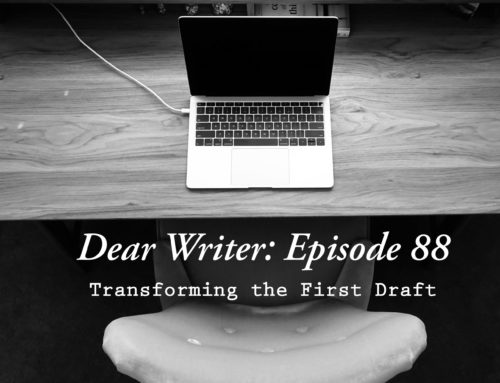
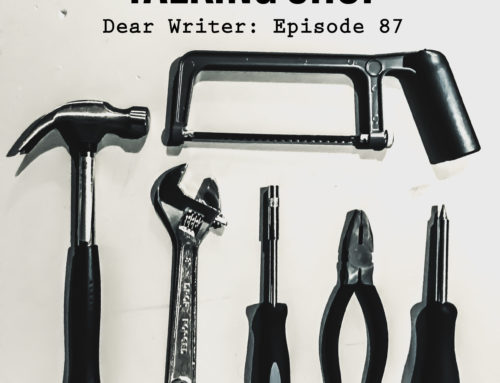

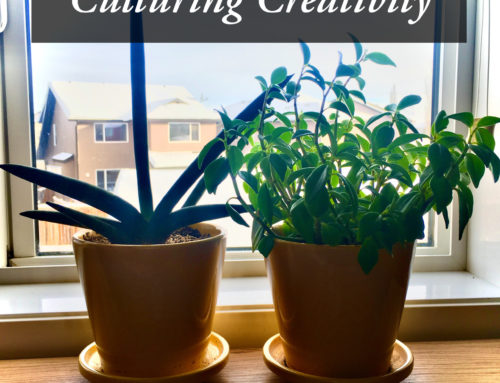

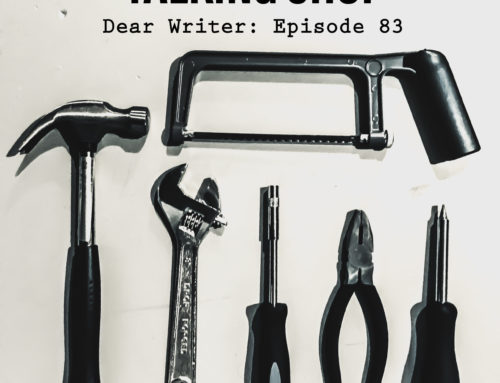


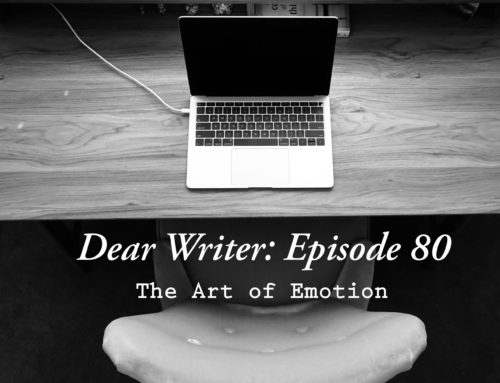
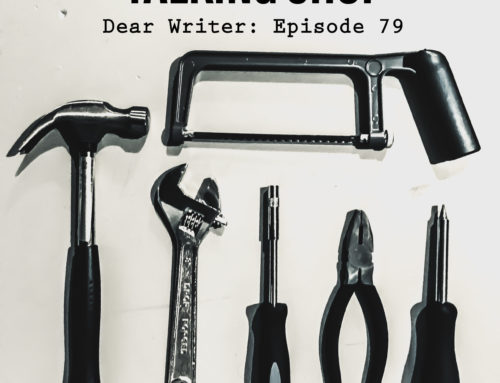
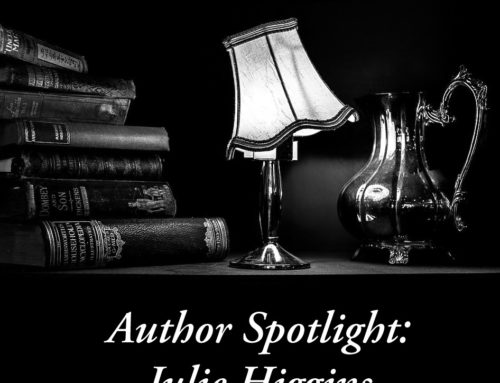
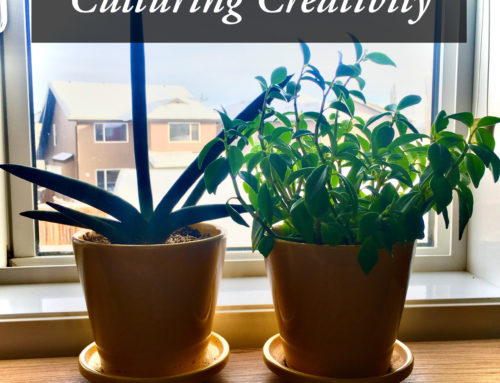
Leave A Comment